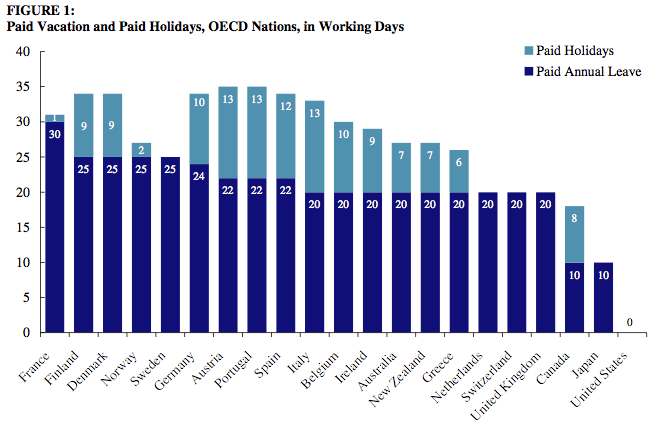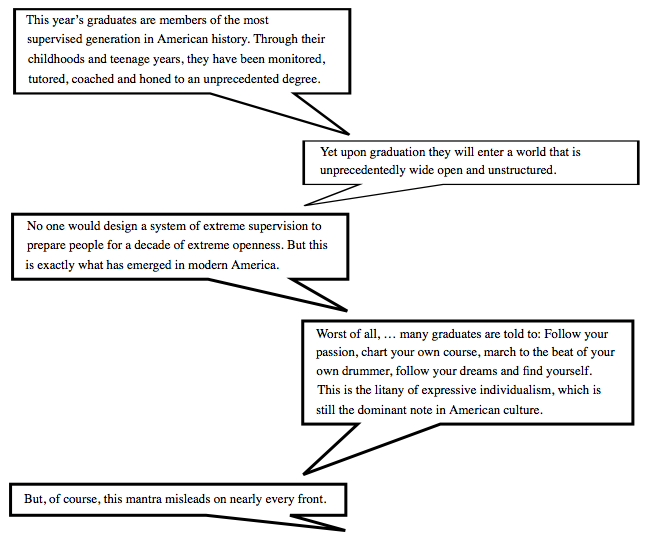When was your last paid vacation? If you live in the United States, your answer might be “never”…

[Chart from No Vacation Nation – Center for Economic and Policy Research, via CNN]
When was your last paid vacation? If you live in the United States, your answer might be “never”…

[Chart from No Vacation Nation – Center for Economic and Policy Research, via CNN]
Ape Con Myth is all about the process. As such, the launch of ACM 5.0 does not feature any immediate changes. The whole thing will unfold right in front of your eyes, right here, starting right… now!

In response to continued economic hardship, Ape Con Myth recommends that the entire population of the United States take a vacation as soon as possible. Please refer to the map below to find your destination. Each state has been assigned a foreign country with a comparable GDP.
To complete the exercise, write a short essay on what your home state could learn from its economic counterpart, and vice versa. Airlines are asked to provide pen and paper to all returning travelers for this purpose and to forward the collected works to Ape Con Myth for processing. Wikipedia is an acceptable substitute for those who can’t afford the trip. Your essays are welcome in the comments.
[Map via Big Think‘s Strange Maps; Thanks to scribblesabit]

Though this op-ed highlights the great disconnect between what young people are told and the very different life waiting for them as “adults”, this phenomenon is far from new. Also not new is the implication that we shouldn’t have gotten everyone’s hopes up in the first place, as opposed to perhaps admitting that our so-called adulthood is often nothing more than people getting backed into an economic corner where our “calling” is replaced with… whatever can pay the bills. Hopefully.
[Excerpts from the David Brooks’ It’s Not About You – NYTimes]
What to feel a lot of different ways about China in the span of a few minutes?
Simply start with any Business Insider post on China and then go to the next one they suggest at the end…
Out of all that, what can’t ACM get out of its head? Five words from the 17th fact about China that will blow your mind:
“mobile execution vans for efficiency”
…Â What the hell is the rush?!
“All of the problems of the world could be settled easily if men were only willing to think.” – Thomas J. Watson
It’s too bad UN-Water didn’t make it in our initial Google results for “water” (it’s the 64th result) because if you have a few minutes and a desire to understand the global water situation, the links to all the information you need are on one page.
In addition to their statistics page, UN-Water has three flagship publications:
What’s the story? From skimming 500 pages of pdfs, it was largely what you’d expect. Developing countries are making progress, but have a long way to go. Increasing populations, advancing economies, climate change and lack of information, communication and funding are just a few of the factors involved. Billions of people are still without the basics and while Africa and Asia house the areas furthest behind, there’s plenty of trouble spots in the most developed of countries and economies.
Although the challenges are great, it is important to remember that this is not a problem in search of a solution. For the most part, it is a lame-duck problem waiting for the implementation of solutions already in hand. That’s why the World Water Development Report focuses our attention on decision-making:
That’s the finish line for this week’s water sprint. Next steps include digging into some country-level data, where we’ll really start to see what the hold-up is, and updating/expanding on our first water map.
Four links to international water organizations quickly turn into the pile below with a little looking. If you include UN-Water’s members and partners and UNESCO-IHP’s Water Centres, we probably have before us what could be called most of the border pieces of the water puzzle.
Now the question becomes, is that too many organizations or not enough? No, wait. What’s the problem again?
Okay, here’s our top 50 “water’ results minus what we don’t need and organized by type of source:
Next step? Skim, expand and reorganize…
So far Ape Con Myth has put together a few pieces of the water puzzle. Now it’s time to start dumping the rest of the box out on the table. And what better way to do that then with a Google search.
Here’s the first 50 results for “water”:
While looking up “water” in Wikipedia wouldn’t be enough, searching for it on Google provides more than we need. In this first round, 21 of the results have been crossed out for being unrelated or useless to our research. Next comes a little organization…
The year, 1994. The world’s population, 5.6 billion. How bunched up were we then?
Plenty of room to breathe, right? But where is everyone else?
Suddenly it’s getting a little crowded in here, particularly considering most of the grey area is quite inhospitable. Thankfully there’s no one around to call us an invasive species.
Other population density info: